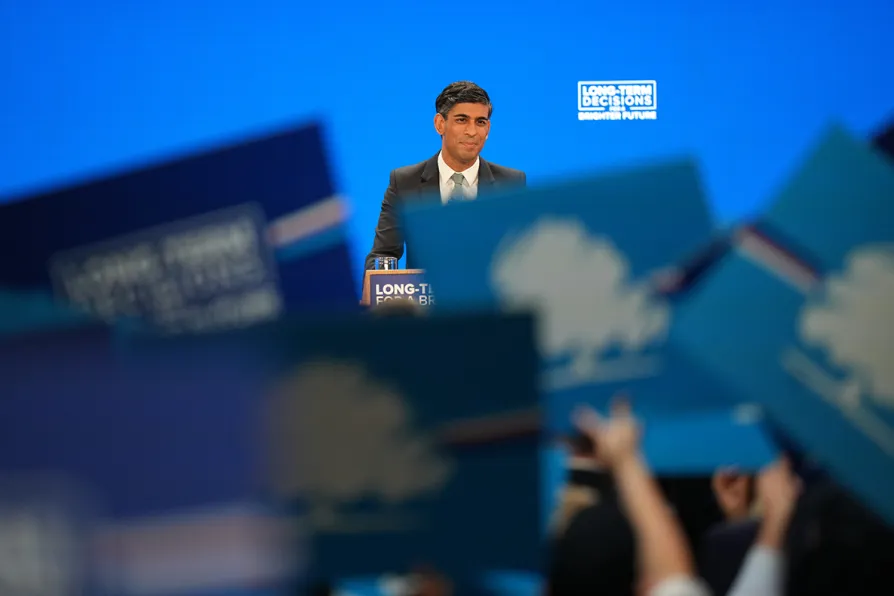‘No plan nor vision for fixing broken Britain’
Sunak's speech offers ‘nothing to tackle the housing crisis, low wages, insecure work, poverty-level benefits and public services stretched to breaking point’

 Prime Minister Rishi Sunak delivers his keynote speech at the Conservative Party annual conference at Manchester Central convention complex, October 4, 2023
Prime Minister Rishi Sunak delivers his keynote speech at the Conservative Party annual conference at Manchester Central convention complex, October 4, 2023
RISHI SUNAK pretended he is going to change things in a Tory conference speech where he ignored real concerns and the fact that his party has been the government for 13 years.
The Prime Minister was silent on the cost-of-living crisis choking the country as the chaotic Conservative conference in Manchester crawled to a close today, while a new poll showed most voters judge him a flop on key policy priorities.
Instead, he made a number of second-order announcements, including confirming the very badly kept secret that the northern part of HS2 is to be cancelled.
Similar stories

“At local level, it’s different."

Tax rich instead of cutting benefits, PM told

Wales reporter DAVID NICHOLSON examines the options for the first all-Wales Morning Star conference











